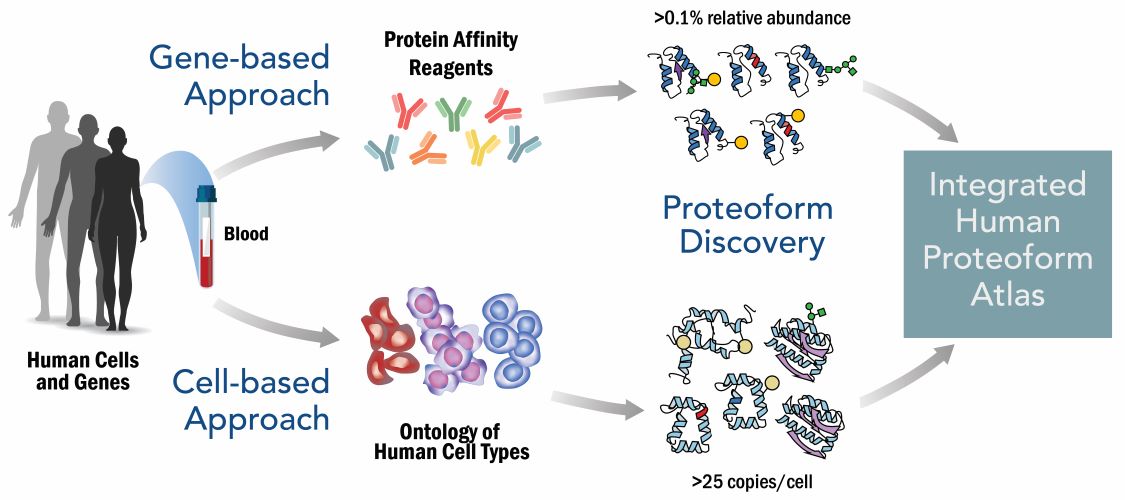Proteins are the primary effectors of function in biology, and thus complete knowledge of their structure and properties is fundamental to deciphering function in basic and translational research. The chemical diversity of proteins is expressed in their many proteoforms, which result from combinations of genetic polymorphisms, RNA splice variants and post-translational modifications. This knowledge is foundational for the biological complexes and networks that control biology, yet remains largely unknown. We propose here an ambitious initiative to define the human proteome; that is to generate a definitive reference set of the proteoforms produced from the genome. Several examples of the power and importance of proteoform-level knowledge in disease-based research are presented, along with a call for improved technologies in a two-pronged strategy to accomplish the Human Proteoform Project.

